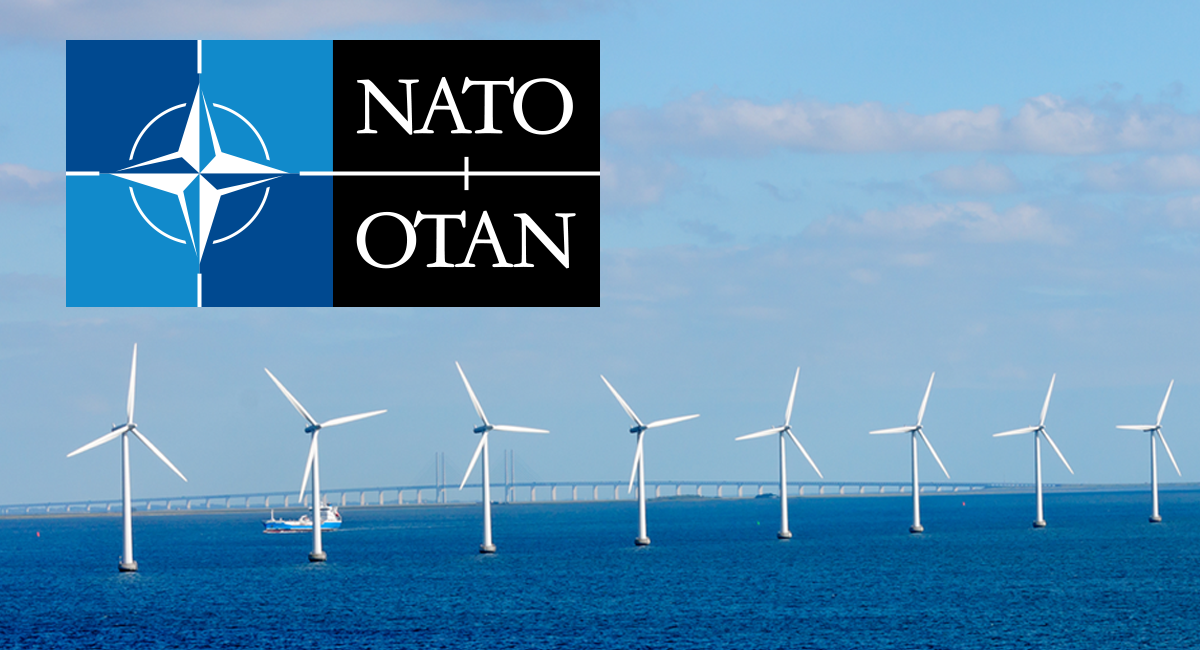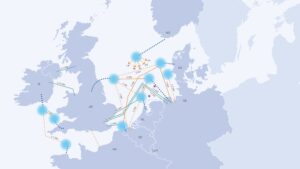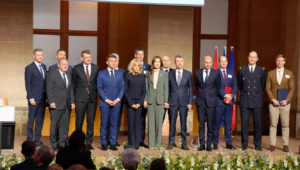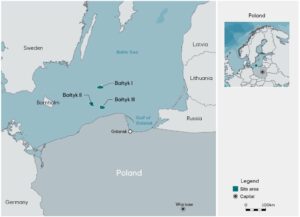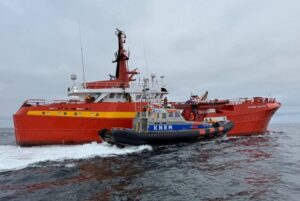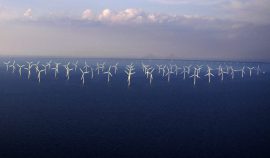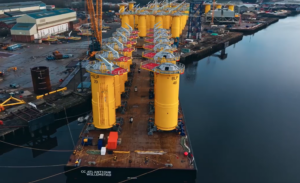North Sea, Baltic Sea Countries Enter Pacts to Protect Offshore Energy Infrastructure Amid Concerns Over Russian Sabotage
Eight Baltic Sea countries signed a joint declaration on collaborating closer to secure critical offshore energy infrastructure in the region on 10 April, only a day after six North Sea countries entered into a similar agreement. Both are a result of security concerns arising from the Russian invasion of Ukraine and reports of possible sabotage of offshore and subsea energy infrastructure in the North and Baltic Seas.
Concerns over Russia sabotaging offshore energy assets came into the spotlight after four gas leaks were found in September 2022 on the twin Nord Stream pipeline system in the Baltic Sea.
Following national investigations into the incident initiated by Germany, Sweden and Denmark, and studies by the Norwegian and Swedish seismic institutes, European authorities said that the incident could have been the result of “deliberate actions”, as reported by Offshore Energy.
In February 2023, Dutch General and Military Intelligence and Security Services (AVID and MVID) sent a letter to the Dutch government, together with an update on the latest insights into covert activities being conducted by Russia, warning the government that they have information on Russia mapping the country’s North Sea infrastructure, including gas pipelines, offshore wind farms, and internet cables.
On 10 April, the Energy Ministers of Lithuania, Denmark, Estonia, Finland, Germany, Latvia, Poland and Sweden met in Vilnius, Lithuania, where they signed the Vilnius Declaration, committing to protect offshore and subsea infrastructure against activities that may put the energy assets and supply into jeopardy.
The declaration was signed during the Baltic Sea High Level Energy Security Meeting 2024, which gathered the eight Baltic Sea countries, the European Union and representatives of NATO, the European Agency for the Cooperation of Energy Regulators (ACER), European transmission system operators (TSOs) and the European wind industry.
The agreement between the Baltic Sea countries came only a day after six North Sea countries signed a joint declaration to cooperate on the protection of critical underwater energy and telecommunication infrastructure in the North Sea.
Building upon the points discussed at the North Sea Summit held in April 2023, Belgium, the Netherlands, Germany, Norway, the UK, and Denmark have now signed the declaration on the protection of North Sea infrastructure, as reported by Offshore Energy on 9 April.
The declaration sets out an agreement to cooperate and share information on the protection of underwater infrastructure, including subsea fibre optic cables, oil and gas pipelines, electrical interconnectors and offshore wind farm installations.
Through the collaboration agreed upon under the Vilnius Declaration, the Baltic Sea countries pledged to work together to deter possible malign activities against them within NATO and EU and strengthen Europe’s resilience against new forms of hybrid and cyber warfare according to the European wind energy industry organisation, WindEurope.
“The wind industry is already helping the military to protect energy infrastructure – and to support national security more broadly. By exchanging data, hosting relevant technology and supporting the operation of radar. The NATO is doing excellent work here already. We encourage governments to build physical, cyber and data security into their procurement of energy equipment, including the qualification criteria they apply to who can build wind farms,” said Giles Dickson, WindEurope CEO.
Along with protecting offshore energy assets, the declaration also underlines the eight countries’ ambitions to accelerate the deployment of offshore wind farms.
In the Vilnius Declaration, the eight countries reaffirm their commitment to implement the actions outlined in the EU Wind Power Package to unlock the Baltic Sea’s offshore wind resources and pledge to decarbonise their energy systems as soon as possible, and help phase out Russian fossil fuels and replacing them with home-grown renewable energy.
The Baltic Sea states acknowledge the vast offshore wind potential in the Baltic Sea for decarbonisation, diversification, electrification and the production of renewable hydrogen. The Vilnius Declaration also highlights that greater interconnectivity among the EU Baltic Sea countries will significantly increase Europe’s energy security, WindEurope notes. In this regard, the eight Baltic Sea signatories want to enhance collaboration on jointly developed hybrid offshore wind farms, new offshore energy hubs and the development of an increasingly meshed offshore wind grid.
NATO has also emphasised the need to increase home-grown renewable energy capacity and grow the European supply chain, as otherwise the dependency on Russian fossil fuels might be exchanged for energy dependency on China, according to David van Weel, NATO Assistant Secretary General for Innovation, Hybrid and Cyber.
“The stakes for NATO are high: If Allies take diverging directions in adapting to the energy transition, some technologies might be incompatible and our military interoperability can be at risk. If we do not plan and secure the supply chains of critical raw materials and renewable energy technologies, we might end up with another energy dependency – this time on China. (…) NATO’s Energy Transition by Design is a massive challenge, but it is vital to meet it if we want our Alliance to be greener and stronger,” David van Weel said.

ADVERTISE ON OFFSHOREWIND.BIZ
Get in front of your target audience in one move! OffshoreWIND.biz is read by thousands of offshore wind professionals daily.
Follow offshoreWIND.biz on:

